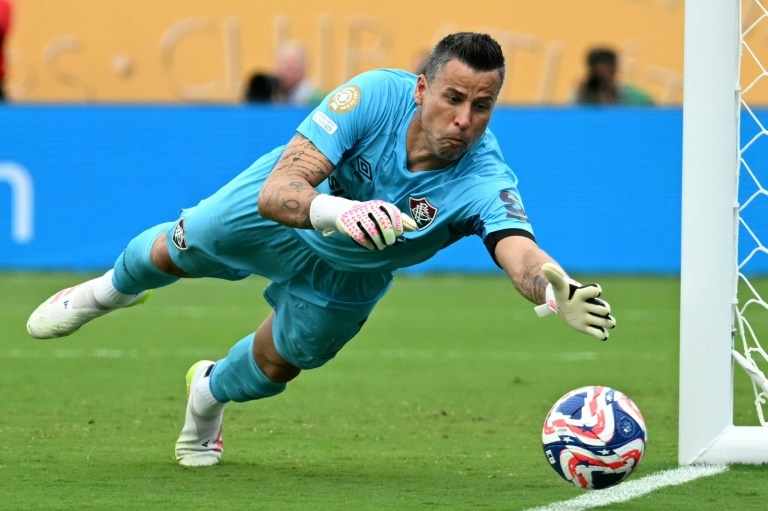How Soccer Players Benefit from Amino Acids and Pre-workout Supplements

Sports have become more competitive than ever, and soccer is no exception. A slip in performance could make or break a player's professional career.
9 months ago
To enhance their performance on the field, footballers may take amino acids and pre-workout supplements before a game. What are they, are they legal, and how do they benefit the athletes? Let's find out!
Pre-workout supplements, also commonly referred to as pre-workouts, contain a variety of ingredients specifically designed to boost energy and athletic performance. Typically in powder form, they’re mixed with water and consumed before exercise for optimal effect.
While there are many different formulas for pre-workout supplements, most share common ingredients, though quantities can vary by brand. However, not all products on the market are tested for purity, so it’s essential to choose a reliable source.
Opting for an emerging supplement manufacturer can sometimes provide a fresh approach, with a strong focus on purity and innovation, giving athletes the assurance of clean, effective ingredients crafted for performance.
Most pre-workout supplements are legal for professional soccer players to take. However, it's essential to look out for products that do not contain substances from the World Anti-Doping Agency (WADA) banned list, as they are prohibited from all National and International Amateur and Professional Sports Leagues.
There are two different types of amino acids soccer players may take, and these are as follows:
Branched-chain amino acids (BCAAs): These are essential nutrients or proteins that your muscles burn for energy. While they are commonly found in foods such as eggs, chicken, beef, salmon, and lentils, BCAAs can be taken in pill form. In some cases, healthcare providers may also administer these types of amino acids intravenously.
Essential amino acids (EAAs): These are organic compounds that your body needs to function properly. Protein-rich foods like meat, fish, and soybean contain EAAs, which can boost athletic performance or improve mood.
During an intense exercising session, muscles may experience significant stress, causing soreness throughout the body. This is why resting and eating after workouts is essential to let your muscles recuperate.
BCAAs help reduce the rate of muscle breakdown, which can decrease the length and severity of delayed onset muscle soreness. Simply put, it boosts muscle recovery and relieves pain.
During workouts, your muscles use BCAAs, causing their levels to drop significantly. This produces tryptophan in the brain, which gets converted to serotonin, resulting in muscle fatigue.
Some soccer players take supplements containing BCAAs to boost the levels of branched-chain amino acids in their blood. This reduces muscle fatigue, making athletes feel less tired during exercises.
While BCAAs are great for recovery after an intense workout, they don't improve athletic performance. For that, soccer players add essential amino acids to their diet.
EAAs contain three BCAAs and six more organic compounds that stimulate protein and collagen production and promote muscle growth. They help build new muscle tissue quicker, resulting in improved body composition and better athletic performance.
Amino acids are not the only pre-workout supplements soccer players consume. They're just an ingredient in a mix of concoctions that contain the following:
Before a match or a workout, soccer players may need a boost of energy to keep them focused. This is where caffeine comes in. It is a central nervous system stimulant that can improve a footballer's overall performance.
Caffeine also increases mental alertness, boosts memory, and reduces body fat. It is a great stimulant for soccer players who rely on their agility and reflexes to gain an edge in the field.
Most pre-workout supplements contain between 150mg and 300mg of caffeine per serving. That's around three cups of coffee, which can be excessive, especially for people who are sensitive to it.
Considered to be a non-essential amino acid, beta-alanine helps produce other chemicals in the human body. Soccer players use it to improve performance and muscle size.
In addition to that, beta-alanine can treat symptoms of menopause, sarcopenia, and many other conditions. Studies have shown that this amino acid may lower fatigue and reduce recovery times following an intense workout.
Creatine is an organic compound that provides a steady energy source to your muscles, improving exercise performance and muscle mass. While it's a naturally occurring chemical, it's also present in red meat and seafood.
You can purchase creatine as a standalone product or buy a pre-workout supplement that contains this compound. It's popular among bodybuilders, footballers, and hockey players. In addition to that, it's great for those engaging in resistance training or light daily exercise.
The human body naturally produces nitric oxide to improve blood flow. Pre-workout supplements contain L-arginine, L-citrulline, and other chemicals to create this psychological compound.
According to some studies, the production of nitric oxide through supplements helps transport essential nutrients to the muscles, improving athletic performance.
Soccer players must maintain a balanced diet rich in lean protein, quality carbohydrates, and healthy fats, often consuming multiple small meals throughout the day. However, despite these efforts, meeting all nutritional needs through food alone can be challenging, especially during intense training or competition periods. In these situations, athletes turn to amino acids and pre-workout supplements to support energy levels, recovery, and overall performance.
Amino acids, the building blocks of protein, play a crucial role in muscle repair and growth. According to the Cleveland Clinic, essential amino acids must be obtained through diet or supplementation, as the body cannot produce them naturally. By incorporating these supplements, soccer players can ensure they receive the necessary nutrients to sustain high performance and expedite recovery.
Soccer matches are demanding, requiring constant mobility, alertness, and agile movements from the players. Footballers must maintain a balanced diet and take supplements to meet these requirements.
While pre-workouts are a great way to improve performance and enhance endurance, buying these products from reliable manufacturers is important. Contamination with banned substances could lead to a positive doping test, resulting in a lengthy ban.
Pre-workout supplements, also commonly referred to as pre-workouts, contain a variety of ingredients specifically designed to boost energy and athletic performance. Typically in powder form, they’re mixed with water and consumed before exercise for optimal effect.
While there are many different formulas for pre-workout supplements, most share common ingredients, though quantities can vary by brand. However, not all products on the market are tested for purity, so it’s essential to choose a reliable source.
Opting for an emerging supplement manufacturer can sometimes provide a fresh approach, with a strong focus on purity and innovation, giving athletes the assurance of clean, effective ingredients crafted for performance.
Most pre-workout supplements are legal for professional soccer players to take. However, it's essential to look out for products that do not contain substances from the World Anti-Doping Agency (WADA) banned list, as they are prohibited from all National and International Amateur and Professional Sports Leagues.
There are two different types of amino acids soccer players may take, and these are as follows:
Branched-chain amino acids (BCAAs): These are essential nutrients or proteins that your muscles burn for energy. While they are commonly found in foods such as eggs, chicken, beef, salmon, and lentils, BCAAs can be taken in pill form. In some cases, healthcare providers may also administer these types of amino acids intravenously.
Essential amino acids (EAAs): These are organic compounds that your body needs to function properly. Protein-rich foods like meat, fish, and soybean contain EAAs, which can boost athletic performance or improve mood.
During an intense exercising session, muscles may experience significant stress, causing soreness throughout the body. This is why resting and eating after workouts is essential to let your muscles recuperate.
BCAAs help reduce the rate of muscle breakdown, which can decrease the length and severity of delayed onset muscle soreness. Simply put, it boosts muscle recovery and relieves pain.
During workouts, your muscles use BCAAs, causing their levels to drop significantly. This produces tryptophan in the brain, which gets converted to serotonin, resulting in muscle fatigue.
Some soccer players take supplements containing BCAAs to boost the levels of branched-chain amino acids in their blood. This reduces muscle fatigue, making athletes feel less tired during exercises.
While BCAAs are great for recovery after an intense workout, they don't improve athletic performance. For that, soccer players add essential amino acids to their diet.
EAAs contain three BCAAs and six more organic compounds that stimulate protein and collagen production and promote muscle growth. They help build new muscle tissue quicker, resulting in improved body composition and better athletic performance.
Amino acids are not the only pre-workout supplements soccer players consume. They're just an ingredient in a mix of concoctions that contain the following:
Before a match or a workout, soccer players may need a boost of energy to keep them focused. This is where caffeine comes in. It is a central nervous system stimulant that can improve a footballer's overall performance.
Caffeine also increases mental alertness, boosts memory, and reduces body fat. It is a great stimulant for soccer players who rely on their agility and reflexes to gain an edge in the field.
Most pre-workout supplements contain between 150mg and 300mg of caffeine per serving. That's around three cups of coffee, which can be excessive, especially for people who are sensitive to it.
Considered to be a non-essential amino acid, beta-alanine helps produce other chemicals in the human body. Soccer players use it to improve performance and muscle size.
In addition to that, beta-alanine can treat symptoms of menopause, sarcopenia, and many other conditions. Studies have shown that this amino acid may lower fatigue and reduce recovery times following an intense workout.
Creatine is an organic compound that provides a steady energy source to your muscles, improving exercise performance and muscle mass. While it's a naturally occurring chemical, it's also present in red meat and seafood.
You can purchase creatine as a standalone product or buy a pre-workout supplement that contains this compound. It's popular among bodybuilders, footballers, and hockey players. In addition to that, it's great for those engaging in resistance training or light daily exercise.
The human body naturally produces nitric oxide to improve blood flow. Pre-workout supplements contain L-arginine, L-citrulline, and other chemicals to create this psychological compound.
According to some studies, the production of nitric oxide through supplements helps transport essential nutrients to the muscles, improving athletic performance.
Soccer players must maintain a balanced diet rich in lean protein, quality carbohydrates, and healthy fats, often consuming multiple small meals throughout the day. However, despite these efforts, meeting all nutritional needs through food alone can be challenging, especially during intense training or competition periods. In these situations, athletes turn to amino acids and pre-workout supplements to support energy levels, recovery, and overall performance.
Amino acids, the building blocks of protein, play a crucial role in muscle repair and growth. According to the Cleveland Clinic, essential amino acids must be obtained through diet or supplementation, as the body cannot produce them naturally. By incorporating these supplements, soccer players can ensure they receive the necessary nutrients to sustain high performance and expedite recovery.
Soccer matches are demanding, requiring constant mobility, alertness, and agile movements from the players. Footballers must maintain a balanced diet and take supplements to meet these requirements.
While pre-workouts are a great way to improve performance and enhance endurance, buying these products from reliable manufacturers is important. Contamination with banned substances could lead to a positive doping test, resulting in a lengthy ban.







Comments